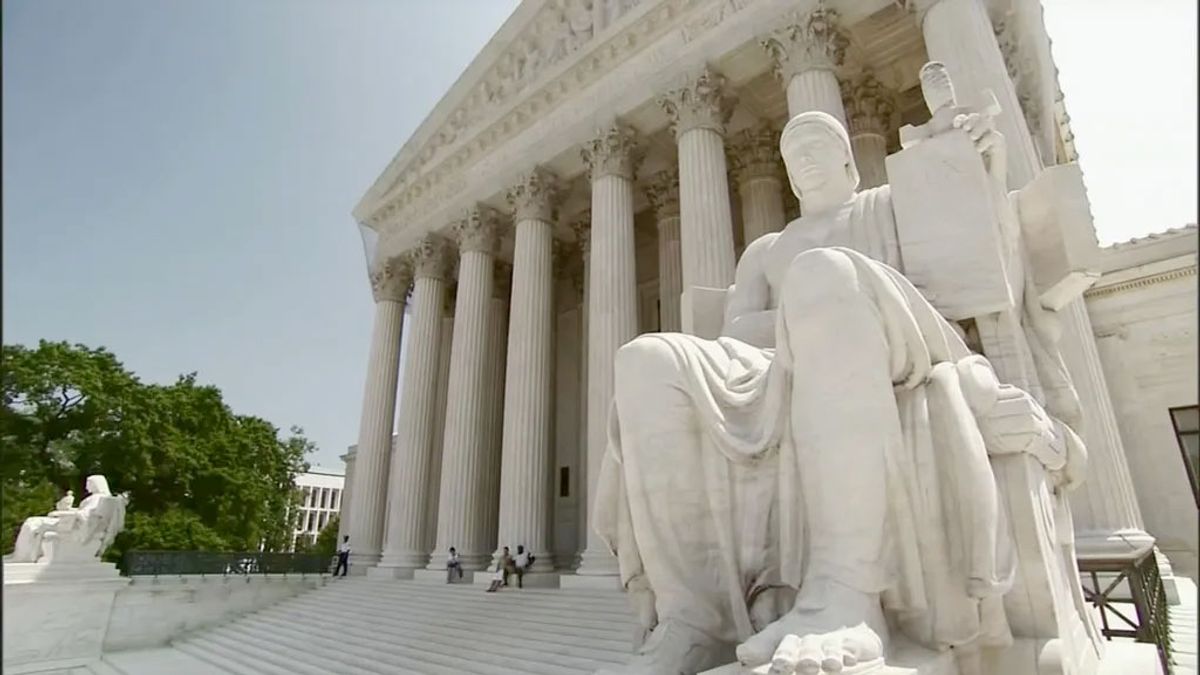The US Supreme Court quizzed lawyers on Monday in a dispute over whether a claim for valuable medieval art may proceed in the US if it was taken by Nazi Germany from its own Jewish citizens. At stake, if the lawsuit goes forward, is the fate of the famous Guelph Treasure, a collection of church reliquaries estimated to be worth at least €200m. But a decision from the country's highest court could also open the door for other reparations, or suits against the US in foreign courts.
At issue for the justices is whether a taking of property as part of a genocide is “in violation of international law” under the Foreign Sovereign Immunities Act (FSIA), one of the rare instances in which the statute lets plaintiffs sue foreign nations in the US. The claimants are descendants of three German Jewish art dealers who sold the works to the Nazi Prussian government in 1935 at what they say was a forced low price after the Nazis blocked their ability to sell the works elsewhere, as part of the systematic extermination of Jewish lives and livelihood, and therefore a violation of international law. The trove is now held in the Kunstgewerbemuseum in Berlin (Applied Arts Museum) and administered by the state-owned Prussian Cultural Heritage Foundation (SPK). The federal appeals court in Washington, DC let the case proceed in 2018, but Germany and the SPK appealed.
Jonathan Freiman, the lawyer for Germany and the SPK, argued that the court should preserve Congress’s understanding when it enacted the FSIA in 1976 that a violation of “international law” refers only to takings from non-citizens, and not seizures that involve any other breaking of international law.
Justice Clarence Thomas asked Freiman: “Just imagine that there is a campaign of genocide, but as part of that there’s a campaign to take jewellery, art, even gold teeth…. Can that be part of the genocide?” Thomas, until recently almost always silent when the court is in session, seems to prefer the more orderly format for the oral arguments conducted remotely, in which each justice has an allotted time to ask questions, and has vigorously done so since audio of the arguments has been broadcast live to the public during the Covid-19 pandemic.
The court has invited the US government’s views on the case, and both Freiman and Edwin Kneedler, the deputy US solicitor general, told the court that when Congress enacted the takings exception, it understood that a claim had to involve a violation of the international law of takings, not genocide. The court would need “clear instructions from Congress” to expand that meaning, Kneedler said.
The plaintiffs meanwhile point to an amendment to the FSIA made in 2016 to show that Congress intended to allow claims by German Jews for property taken during the Nazi era, which the statute defines as starting in January 1933, before the 1935 Guelph sale. Kneedler told the court that the amendment only applies to art loans to the US, and did not change the existing rule that excludes claims made by a nation’s citizens. But several justices including Sonia Maria Sotomayor asked whether the reference to 1933 meant that the Guelph dealers could have lost their German citizenship by 1935, and asked if the court should send the case back to the lower court to determine if that happened.
While Freiman said no, the plaintiff’s lawyer, Nicholas O’Donnell, disagreed, saying “we have framed our claim on that basis”. Germany committed genocide, he said, “which itself was a violation of international law”.
Several justices asked O’Donnell how broad a reading of “international law” could be allowed. “Can you give me an example of genocide when property has not been involved?” Justice Thomas asked.
But O’Donnell distinguished between cases where “you kill the members of the group, then take their property. Here, you take their property in order to kill the group.” Thomas countered: “I don’t see the difference the sequence would make.”
Much of the discussion focused on the statutory text, which omits a requirement of seizures from a non-citizen, and its legislative history. In differentiating between the words “taking” and “taken,” Justice Elena Kagan asked O’Donnell, “isn’t that slicing the salami pretty thin?”
Justice Stephen Breyer pointed to the “loads of violations of international law that involve property, not just genocide,” such as claims related to slavery or child labour. If the US allows those claims, he said, “so can those other nations. What about Japanese interment camps?” He asked if such a situation would lead to “chaos”. If there isn’t a recognition of a foreign nation’s violations in other countries, “How do courts determine it?” Sotomayor asked. “It’s a question of fact in each case, which may require considerable expertise,” O’Donnell said. Germany and the US are arguing that if the claim goes forward, foreign nations could hand out reciprocal treatment to the US, opening the doors to worldwide claims against the US for alleged bad acts.
If the claim is allowed to proceed, Germany is asking the Supreme Court to rule that the lower court abstain from the case on the basis of foreign relations concerns, under a principle of “international comity”. Recent Trump appointee Amy Coney Barrett, who was sworn in on 27 October, echoed a concern voiced by other justices in both the Guelph claim and another case heard earlier that day about the lower federal courts taking on judgements beyond their scope: “How could property taken from enslaved peoples not apply, so you’d have 700 judges deciding those claims?” Some of the justices asked whether lower courts could and should make independent determinations of whether a foreign nation had committed genocide. In his closing argument, Freiman echoed the justices’ concerns, urging that “700 judges” in the US not be allowed to sit as a world court.
The Supreme Court is due to issue its decision by June.


